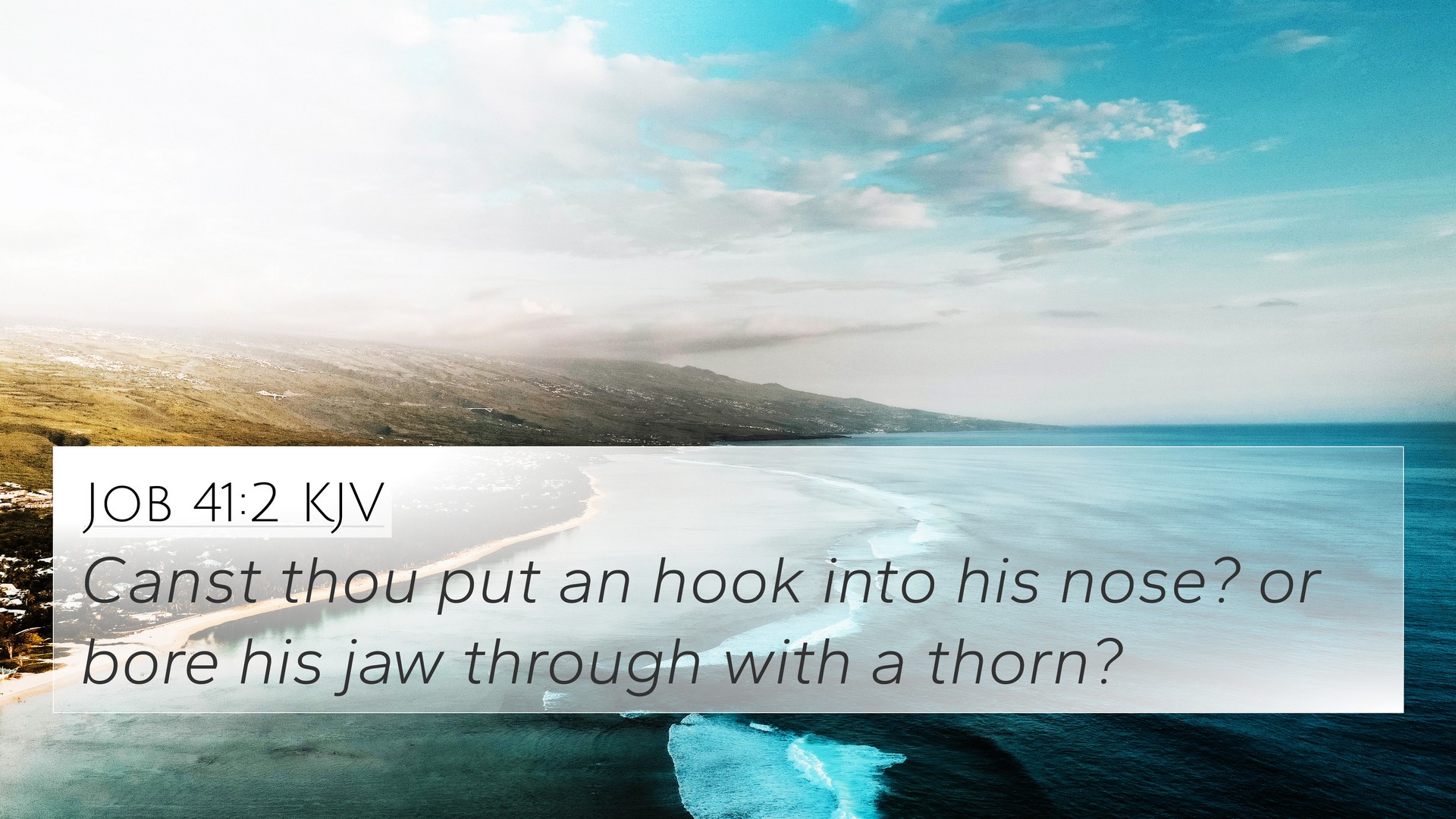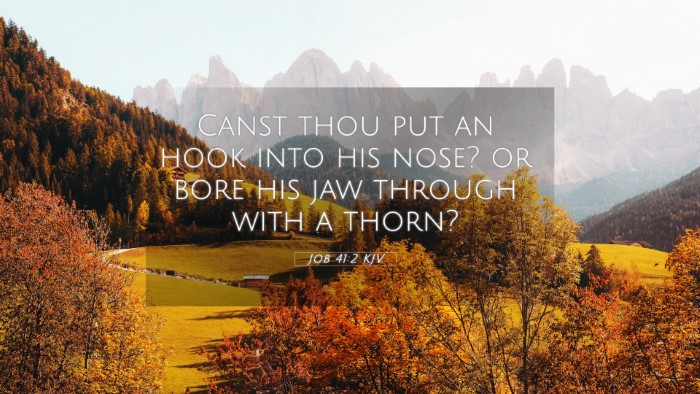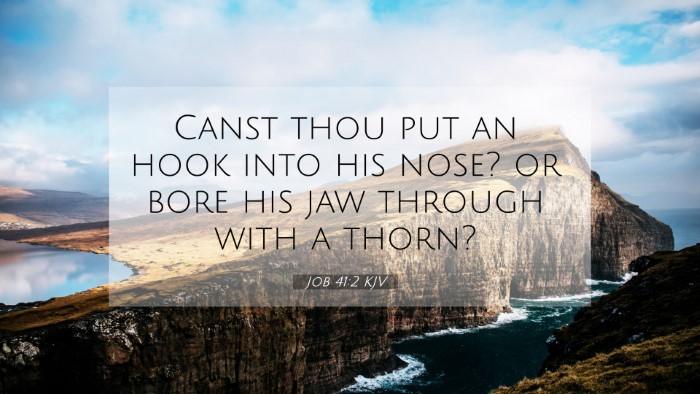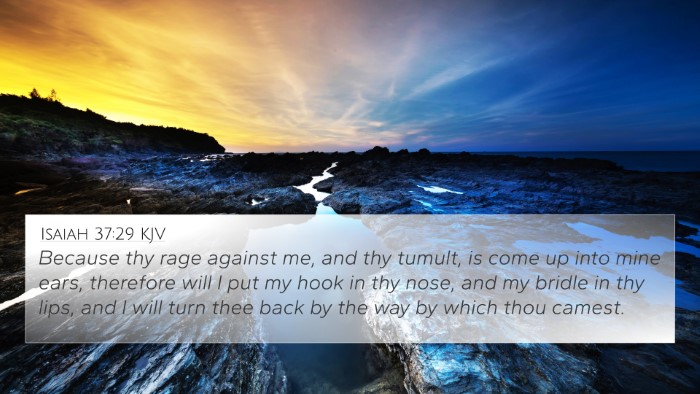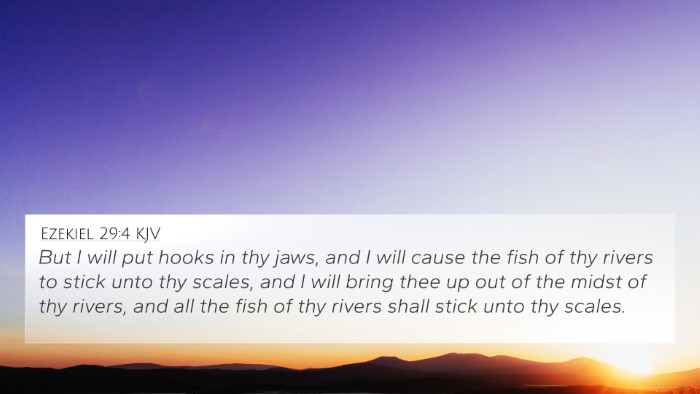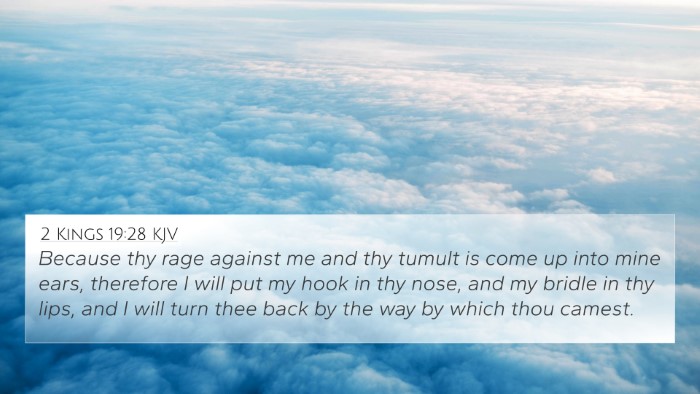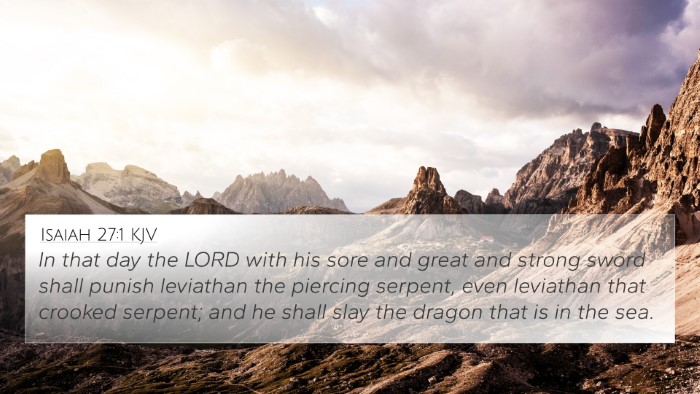Meaning of Job 41:2
Job 41:2 states, "Can you put a rope in his nose or pierce his jaw with a hook?" This verse is part of God's response to Job, illustrating the impracticality of trying to control such a formidable creature, often interpreted as a Leviathan, representing God's unfathomable power in creation. The rhetorical question posed by God highlights human limitations in understanding divine creation and authority.
Insights from Public Domain Commentaries
Matthew Henry elaborates on this verse by emphasizing the notion of human impotence in the face of divine power. He suggests that the imagery of the leviathan and the questions asked by God serve to humble Job and to remind him of his position in relation to the Creator. The use of a rope or hook symbolizes the futility of attempting to tame what is ultimately beyond human reach.
Albert Barnes provides a parallel interpretation, suggesting that the types of creatures described symbolize chaos and evil in the world. By asking Job whether he can catch or tame Leviathan, God points to His sovereignty over all creation, implying that if Job cannot control such beasts, how can he judge God's ways? This underscores the theme of God’s omnipotence and the limits of human understanding.
Adam Clarke adds depth to this notion by discussing the characteristics of Leviathan as a powerful and fearsome creature. He draws attention to the ancient understanding of such creatures in the context of mythology and how they symbolize the chaos that God alone can master. Clarke emphasizes that this is a call for reverence and submission to God's authority and the recognition of His unmatched power.
Bible Cross-References
- Psalm 104:26: This verse mentions Leviathan, suggesting the creature is part of God's creation, which plays in the sea and is under God's command.
- Isaiah 27:1: The prophecy of Leviathan relates to God's judgment over chaos and evil, connecting back to the sovereignty of God demonstrated in Job.
- Job 40:15-24: These verses describe behemoth, another mighty creature, further illustrating God's power over creation.
- Romans 9:20: This verse highlights the relationship between creator and creation, again emphasizing the futility of questioning God's purposes.
- Proverbs 30:33: References to the violent nature of turbulent waters suggest a parallel to leviathan’s fearsome reputation, linking thematically to the idea of uncontrollable forces.
- Exodus 15:1-4: Reflects on God’s triumph over the beast, representing chaos and evil, aligning with the themes in Job regarding God’s power.
- Revelation 13:1: Alludes to a beast rising from the sea, connecting apocalyptic imagery with the chaos represented by Leviathan in Job.
Thematic Connections
The examination of Job 41:2 invites a broader reflection on the themes of power, control, and the relationship between God and creation. Through engaging with comparative Bible verse analysis, one can explore the pervasive idea of God's sovereignty throughout scripture. This verse serves as a reminder that ultimate authority lies with God and that humanity should maintain a posture of humility and reverence.
Tools for Bible Cross-Referencing
To facilitate deeper understanding, here are some suggested tools and methods for engaging with cross-references:
- Bible Concordance: Useful for finding specific words and themes across different passages.
- Cross-Reference Bible Study: Techniques to identify thematic links between various verses.
- Comparative Bible Verse Analysis: A method to analyze how different scriptures interact and support one another.
- Bible Reference Resources: Guides that provide connections between verses to enhance study and understanding.
- Bible Chain References: Systems that connect verses in a thematic chain for easier navigation through related concepts.
User Intent Keywords
To aid in finding related scriptures, consider the following approaches:
- What verses are related to Job 41:2? Explore the connections among Old Testament wisdom literature.
- Find cross-references for Job 41:2: Use thematic studies or concordances to find related verses.
- How do Job 41:2 and Isaiah 27:1 connect? Both passages emphasize God's power over chaotic forces.
- Similarities between Job and Psalms: Many psalms reflect the themes found in Job regarding nature and God's majesty.
- Bible verses that support Job 41:2: Identify scriptures that reinforce God's sovereignty in creation.
